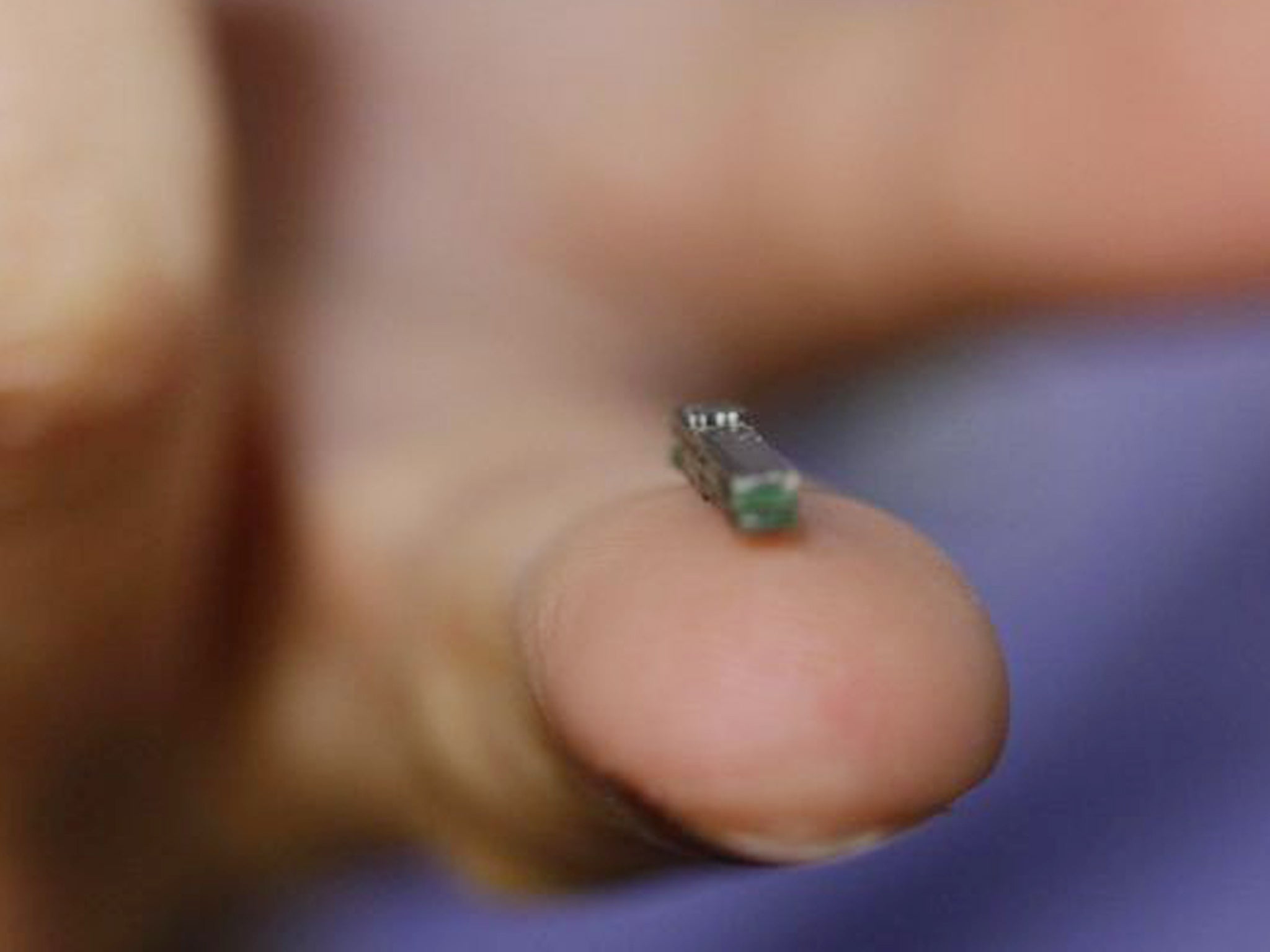Revealed: the tiny Bluetooth weapon in the fight against cancer
Updates on vital health information like proteins, sugar and organic acids in the blood can be displayed on doctor's mobile phone

Your support helps us to tell the story
From reproductive rights to climate change to Big Tech, The Independent is on the ground when the story is developing. Whether it's investigating the financials of Elon Musk's pro-Trump PAC or producing our latest documentary, 'The A Word', which shines a light on the American women fighting for reproductive rights, we know how important it is to parse out the facts from the messaging.
At such a critical moment in US history, we need reporters on the ground. Your donation allows us to keep sending journalists to speak to both sides of the story.
The Independent is trusted by Americans across the entire political spectrum. And unlike many other quality news outlets, we choose not to lock Americans out of our reporting and analysis with paywalls. We believe quality journalism should be available to everyone, paid for by those who can afford it.
Your support makes all the difference.A tiny implant that conducts blood tests under the skin could greatly improve the tracking and treatment of cancer and other diseases, researchers claim.
The 14 millimetre-long device is packed with miniaturised electronics including five sensors and a WiFi transmitter.
Power is delivered through the skin by a battery patch which also relays test data via Bluetooth.
Results can be displayed on a doctor's mobile phone or laptop.
The sensors target proteins, sugar and organic acids in the blood that provide vital health information.
For patients with chronic illnesses, such as cancer or diabetes, the device could provide continuous monitoring and sound an alert before symptoms emerge.
Scientists believe the implant will be especially useful as a chemotherapy aid.
Currently doctors rely on occasional blood tests to assess a cancer patient's tolerance of a particular treatment dosage. However, it is difficult to tailor the ideal dose for an individual patient.
The implant opens up the possibility of much more finely tuned and effective treatment, according to Professor Giovanni de Micheli, one of the chip's designers from the EPFL polytechnic in Lausanne, Switzerland.
"It will allow direct and continuous monitoring based on a patient's individual tolerance, and not on age and weight charts, or weekly blood tests," said Prof de Micheli.
"In a general sense, our system has enormous potential in cases where the evolution of a pathology needs to be monitored or the tolerance to a treatment tested."
A prototype has already been tested for five different substances and found to be as reliable as conventional analysis methods.
The results were presented today at DATE (Design Automation & Test in Europe), Europe's largest electronics meeting taking place in Grenoble, France.
Prof de Micheli's team hopes the device will be on the market within four years.
PA
Join our commenting forum
Join thought-provoking conversations, follow other Independent readers and see their replies
Comments